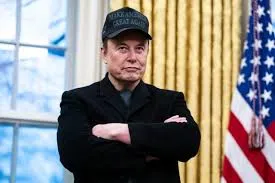
Untraceable Budget Line: DOGE and the $4.7 Trillion Discovery
The Department of Government Efficiency (DOGE), led by Elon Musk, has uncovered that approximately $4.7 trillion in U.S. Treasury payments lacked the necessary Treasury Account Symbol (TAS) codes, rendering these transactions nearly untraceable. The TAS is a critical identifier that links payments to specific budget line items, ensuring transparency and accountability in federal spending. Historically, the inclusion of TAS codes was optional, leading to significant gaps in financial tracking. In response to this discovery, DOGE has mandated the use of TAS codes in all Treasury payments to enhance traceability and prevent potential misuse of funds.
This initiative is part of DOGE’s broader mission to streamline government operations and eliminate inefficiencies. The team, comprising over 100 tech experts, has been actively identifying and addressing areas of waste within the federal bureaucracy. Their efforts have led to significant changes, including the proposed elimination of paper checks—a move projected to save taxpayers approximately $750 million annually. In 2023 alone, issues related to physical checks resulted in over $25 billion in delayed or lost tax refunds.
While these reforms have been lauded by some for promoting efficiency, they have also faced criticism. Concerns have been raised regarding the rapid implementation of changes and the potential for mass layoffs and department closures. Additionally, legal challenges have emerged, with a U.S. judge expected to rule on a case aiming to limit DOGE’s access to governmental information systems. Thirteen Democratic attorneys general have filed an emergency request to block DOGE from accessing these systems, citing potential disruptions to agency programs and unauthorized data usage.
Despite the controversies, DOGE continues to push forward with its agenda, backed by influential figures such as President Donald Trump and Senator Steve Daines. The team’s commitment to overhauling government processes reflects a significant shift towards integrating technological solutions in public administration.